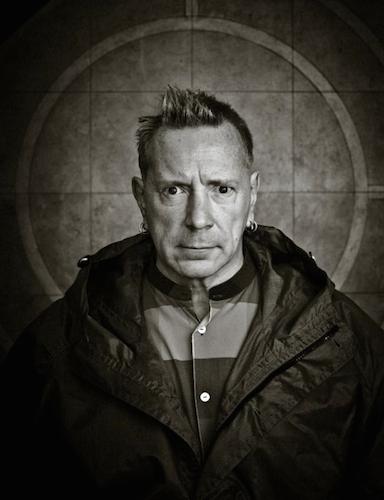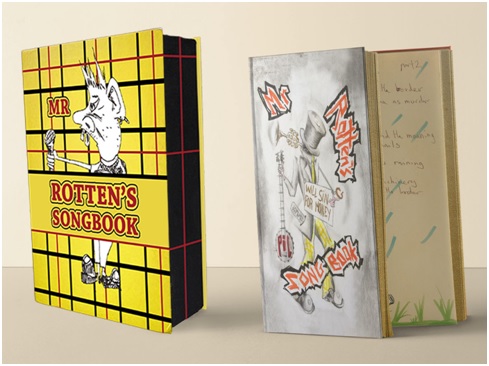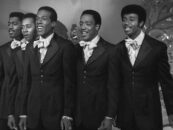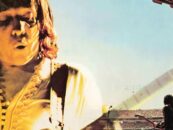In celebration of 40 years of songwriting across both the Sex Pistols and Public Image Ltd. (PiL) eras, John Lydon has announced the publication of Mr. Rotten’s Songbook. Due out March 31 and limited to 1,000 copies, Mr. Rotten’s Songbook is available to pre-order here.
Presented in a large format (37 x 290mm portrait), the 300-page Mr. Rotten’s Songbook features never-before-seen artwork as well as annotated song lyric sheets spanning Lydon’s entire career, written in his own hand. Each album is featured with an exclusive introduction to the songs from Lydon as well as the original cover and hand-drawn artwork from Lydon to bind the lyrics to their meanings. Each book is signed by Lydon and individually numbered.
Lydon, in the press release for the book, responded to questions about his music and art.
What led to the creation of Mr. Rotten’s Songbook?
JL: I’ve written many songs over the years and I’ve always wanted to combine it all in one picturesque way. When I write songs, I think in pictures so it’s the most appropriate thing I could do and looking at all the images together led to Mr. Rotten’s Songbook.
In your recent autobiography, Anger Is An Energy, you mention that “words count” versus just “throwing around bricks as the voice of rebellion.” Can you talk about this a bit?
JL: Comedy is the root to the truth. If you take a thing too seriously, you kind of miss the point of what human nature really is. It’s a hilarious romp through existence. You can learn a lot, firstly, by learning to laugh at yourself. Only then can you begin to laugh at others and this is why when I draw and paint. I like to do it a cartoony way because I think it opens up the personality of the entire event—rather than some serious still life which says nothing and gets us nowhere.
Related: The Sex Pistols release “God Save the Queen”
Is there any piece of artwork in the book that stands out to you or surprised you?
JL: On most of the pieces, I don’t sit down with a specific idea other than the actual songs. I’m quite amazed at what comes out of me. But the character on the front of the book, he’s the biggest surprise of all because I was thinking, how can I encapsulate what this book is supposed to unravel to the reader? That character just appeared on the page. I don’t know what makes me draw these things.
What comes first? Art or music?
JL: I just love drawing. I love the scratch of the pen on the page and the characters come out of that. To be fair to myself, that’s what goes on in my head daily, all the time, 24/7. Every now and again, I manage to draw it onto paper. I use oils, pencil and sometimes I just cut up bits of magazines and use different colors and blend them. Any medium suits me, but the more risky, the better and the more difficult the work involved, the more I enjoy it. This book was very hard to put together—getting the details to be absolutely perfect. Writing out the words, you might think that’s easy. Bloody hell, if you don’t know the song, no one does. When you’re actually writing it, it’s amazing how confused you could become inside your own songs. It’s that Robin Williams in me that keeps going off into other subjects. I keep ping-ponging around ideas and things end up very, very confused. I had to learn how to focus which, strangely enough, I haven’t done up until now. I gave myself the task and I had to stand by it.
Is the art process similar to writing songs?
JL: Yes, but songwriting is a thought process that goes on for months, sometimes even years. Suddenly, while I’m drinking a cup of tea or eating baked beans, I’ll just sit down and quickly write it out. It’s almost like not thinking and it’s like it’s already been processed for me. Songwriting is like me explaining myself to me. I’m still in there as the confused little boy stuck in the hospital not knowing who he was from age 7 to 8. I didn’t really know who I was until around 11, since all the memories returned very slowly. So there it is. While you’re guessing who you are, this is what you’re creating inside your head. I’ve been given a golden opportunity through music, which I never planned on—it happened incidentally and that’s when all the pieces started to fall into place. Now I’m looking at it like a big jigsaw puzzle of my life and slowly, but surely, making it clear, not only to me but to others. There’s no evil intent in me at all. Of course, I could be lying.
What would you like people to take away from this book? Is there an overarching theme as a whole?
JL: Well, if it’s in the library, please don’t take it away without returning it. I’ve been in the public spotlight since the ’70s; that’s a lot of pressure, but I’ve been able to cope with it and still maintain some kind of integrity. That’s what I’m trying to get across here. You may be very confused, but as I say it’s all little pieces of the jigsaw puzzle that I haven’t been able to put together myself, yet. But then again I don’t know anyone who has walked into my life at any point absolutely picture-perfect. So I’m on the same trial as everybody else but I, at least, have found a way of expressing it.
Related: Public Image Ltd. invades American Bandstand
Do you feel that writing songs comes easier than creating art?
JL: No, it’s just the same thing. Except, I’m very wary of the word “art” because the idea of interpreting thought into imagery has been corrupted so much. Even the title “Famous Artist” just comes on with some horrendous fake snobbery and institutionalism. To put it simply, I look at the Sistine Chapel and wonder why they’ve all got little willies. Even the censorship in that is rampant, so everything is still being controlled and that’s no good to any of us.
So art and music for you is the ultimate form of free expression?
JL: Yeah, no boundaries, no rules, no regulations. Do as thy will because you’re not doing any of it to hurt anybody. For me, a much more appropriate world would be one of complete openmindedness. I don’t care what language the man next to me uses. A clear message is what I want in life, transparency. I look into the thoughts behind the process, so I can write songs and now I discover that I can draw. I’m not making any issue out of it, but it’s damn rewarding. I’ll probably be publicly condemned.
What made you decide now is the right time to share the songbook?
JL: Well, if you’re gonna go to trial you might as well tell everyone! That would be the philosophy.
Watch the Sex Pistols perform “God Save the Queen” at their final concert, in 1978
Lydon was born January 31, 1956.
Never miss a post! Sign up for Best Classic Bands‘ Newsletter; form is on every page.









No Comments so far
Jump into a conversationNo Comments Yet!
You can be the one to start a conversation.